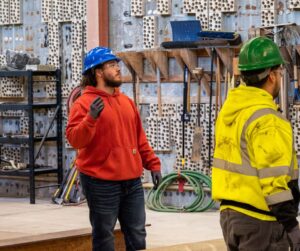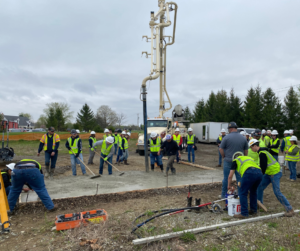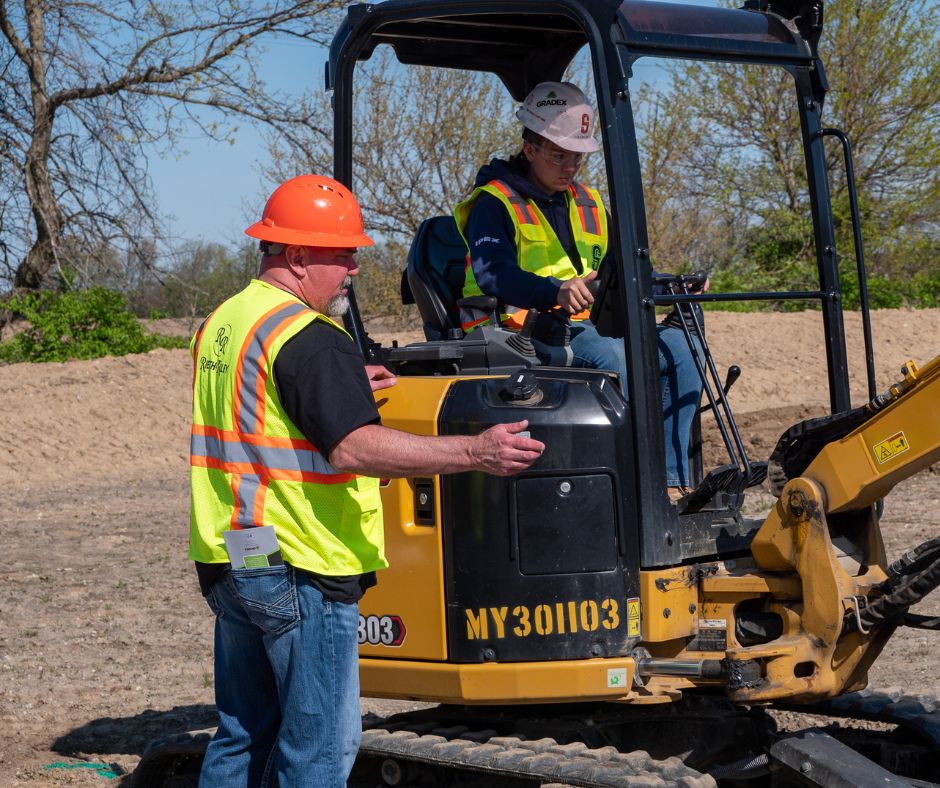As educators, you have a responsibility to prepare our students not only for higher education but also for the workforce. While many believe that college is the traditional route to success, other career paths, such as civil construction, are available to lead to success and are in high demand. This blog will explore the benefits of promoting civil construction as a viable career option for high school students and how educators can integrate civil construction courses into their curriculum with the Civil Construction Pathway (CCP).
Promoting Civil Construction: Benefits and Solutions
Addressing the Skills Gap: According to a survey by Autodesk and the Associated General Contractors of America (AGC), 80% of construction companies struggle to find workers for hourly craft positions. This skills gap is a real problem that affects many companies, and promoting civil construction as a viable career path can help address this issue while providing students with promising career opportunities.
Giving Students Hands-On Experience: Including civil construction lessons in the classroom can provide students with industry knowledge and valuable hands-on experience that would be difficult to obtain outside school. This experience may allow them to pursue further education and training or to become better qualified for entry-level positions in civil construction. By utilizing hands-on learning, you are helping to highlight the aspects of civil construction that are hard to come by in the classroom.
Encouraging Career Exploration: Promoting civil construction as a viable career path can encourage students to explore different career options and broaden their horizons. This exposure to different career paths can help them make informed decisions about their future and set them on the way to a fulfilling career.
Meeting Local Needs: The construction sector, particularly civil construction, needs workers in many localities nationwide. By promoting civil construction as a viable career path, we can help meet this need and support the local economy. Many of the schools that are currently implementing the CCP have made connections with local construction companies. It allows both the school and the local company to mutually benefit by setting up direct access to a pipeline of students who are interested in entering the industry.

Integrating Civil Construction Courses into the Curriculum with the CCP
Partnering with Industry Experts: The CCP encourages partnerships with industry experts and professionals who can provide students with insight into the construction industry and the skills required for success in the field. These partnerships can also lead to paid apprenticeships, providing students with practical experience and career opportunities. They also assist the companies in providing them with skilled workers to help offset workforce development issues.
Providing Career Pathway Programs: Providing career pathway programs that integrate coursework with technical training can help prepare students for entry-level jobs in civil construction or provide a foundation for further education and training. These programs can also include industry-recognized certifications, like OSHA 10, providing students a competitive edge in the job market or preparing them for a technical trade school or college. This also helps companies hire entry-level workers as they will have a strong foundation of knowledge when leaving school.
Build Confidence in Students: It is not uncommon to see that students who struggle academically are not as confident about their future. Offering these students a path that can lead them to success post-graduation is a great way to build students’ confidence and help keep them on track for graduation.
Conclusion
Promoting civil construction as a viable career path for high school students can provide various benefits, from addressing the skills gap to providing hands-on experience and encouraging career exploration.
By incorporating the Civil Construction Pathway and partnering with industry experts, educators can better prepare students for success in the construction industry and help them achieve their career goals. As educators, you are responsible for providing our students with the tools and opportunities they need to succeed in the workforce, and promoting civil construction as a viable career path is one way to do so.
If you know a high school student who would be interested in a career in civil construction, send them to this blog!

